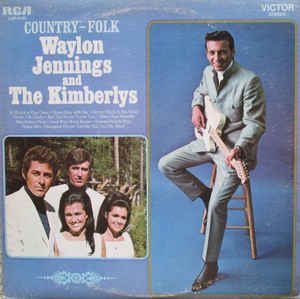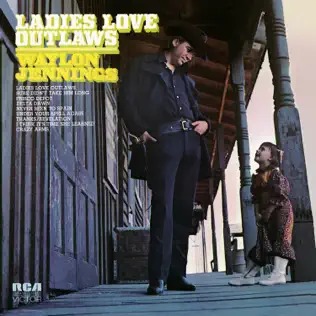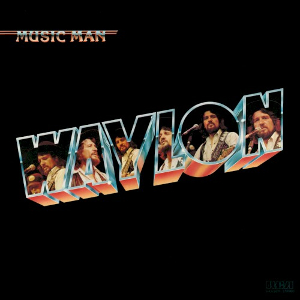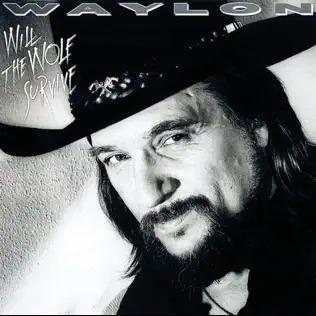
Waylon Arnold Jennings was an American singer, songwriter, musician, and actor. He is considered one of the pioneers of the outlaw movement in country music.

Waylon at JD's is the debut studio album by American singer Waylon Jennings. Though listed in several sources as a live recording, it is in fact a studio album, recorded at Arizona Recorders in Phoenix on December 4, 1964. 2000's The Restless Kid: Live At JD's is a genuine JD's era live recording.

Country-Folk is a studio album by American country music artist Waylon Jennings featuring the Kimberlys on vocals. It was released in 1969 on RCA Victor.

Ladies Love Outlaws is an album by American country music artist Waylon Jennings, released on RCA Nashville in 1972. Together with Jennings' previous album Good Hearted Woman, it marks his transition toward his Outlaw Country image and style. "Ladies Love Outlaws" coined the use of the term "Outlaw" to refer to the country music subgenre, which was developing at the time of its release.

Lonesome, On'ry and Mean is a studio album by American country music artist Waylon Jennings, released on RCA Victor in 1973. It was, after Good Hearted Woman and Ladies Love Outlaws, the third in a series of albums which were to establish Jennings as one of the most prominent representatives of the outlaw country movement. Like its successor, Honky Tonk Heroes, the album is considered an important milestone in the history of country music. It represented the first of Jennings' works produced and recorded by himself, following his fight for artistic freedom against the constraints of the Nashville recording establishment.

Honky Tonk Heroes is The 19th Studio Album by Waylon Jennings, released in 1973 on RCA Victor. With the exception of the final track on the album, "We Had It All", all of the songs on the album were written or co-written by Billy Joe Shaver. The album is considered an important piece in the development of the outlaw sub-genre in country music as it revived the honky tonk music of Nashville and added elements of rock and roll to it.

This Time is the 20th studio album by American country music artist Waylon Jennings, released on RCA Victor in 1974, at the peak of the outlaw country movement. It was produced by Jennings and Willie Nelson.

Dreaming My Dreams is the twenty-second studio album by American country music artist Waylon Jennings. The album was co-produced with Jack Clement and recorded at Glaser Sound Studios in Nashville, Tennessee, between February and July 1974.

Wanted! The Outlaws is a compilation album by Waylon Jennings, Willie Nelson, Jessi Colter, and Tompall Glaser, released by RCA Records in 1976. The album consists of previously released material with four new songs. Released to capitalize on the new outlaw country movement, Wanted! The Outlaws earned its place in music history by becoming the first country album to be platinum-certified, reaching sales of one million.

Waylon & Willie is a duet studio album by American singers Waylon Jennings and Willie Nelson, released by RCA Records in 1978. In the US, it stayed at #1 album on the country album charts for ten weeks and would spend a total of 126 weeks on the country charts.

Waylon Live is a live album by Waylon Jennings, released on RCA Victor in 1976.

I've Always Been Crazy is a studio album by American country music artist Waylon Jennings, released on RCA Victor in 1978.

Music Man is a studio album by American country music artist Waylon Jennings, released in 1980 on RCA Victor.

Black on Black is a studio album by American country music artist Waylon Jennings, released on RCA Victor in 1982.

Will the Wolf Survive is a studio album by American country music artist Waylon Jennings. It was released in 1986 as his debut for MCA Records.

A Man Called Hoss is a concept album by American country music artist Waylon Jennings, released on MCA in 1987.

Waymore's Blues (Part II) is an album by American country music artist Waylon Jennings, released on RCA Nashville on September 13, 1994.
"Don't You Think This Outlaw Bit's Done Got Out of Hand" is a song written and recorded by American country music artist Waylon Jennings. It first released in October 1978 as the second single from his album I've Always Been Crazy. The song peaked at number 5 on the Billboard Hot Country Singles chart. It also reached number 1 on the RPM Country Tracks chart in Canada. Waylon redid the song specifically as well as several others in a session in the mid-1990s in a much slower and more regretful tone towards his previous actions dubbing it 'Outlaw Shit' and it would be released on the 2008 album Waylon Forever, Waylon's first posthumous studio album release.

Ralph Eugene Mooney was an American steel guitar player and songwriter, he was inducted into the Steel Guitar Hall of Fame in 1983. He was the original steel guitarist in Merle Haggard's band, The Strangers and the most prominent steel guitarist in Waylon Jennings' band, The Waylors.

Son of the South is an album released by country musician David Allan Coe. It was released in 1986 on Columbia.



















